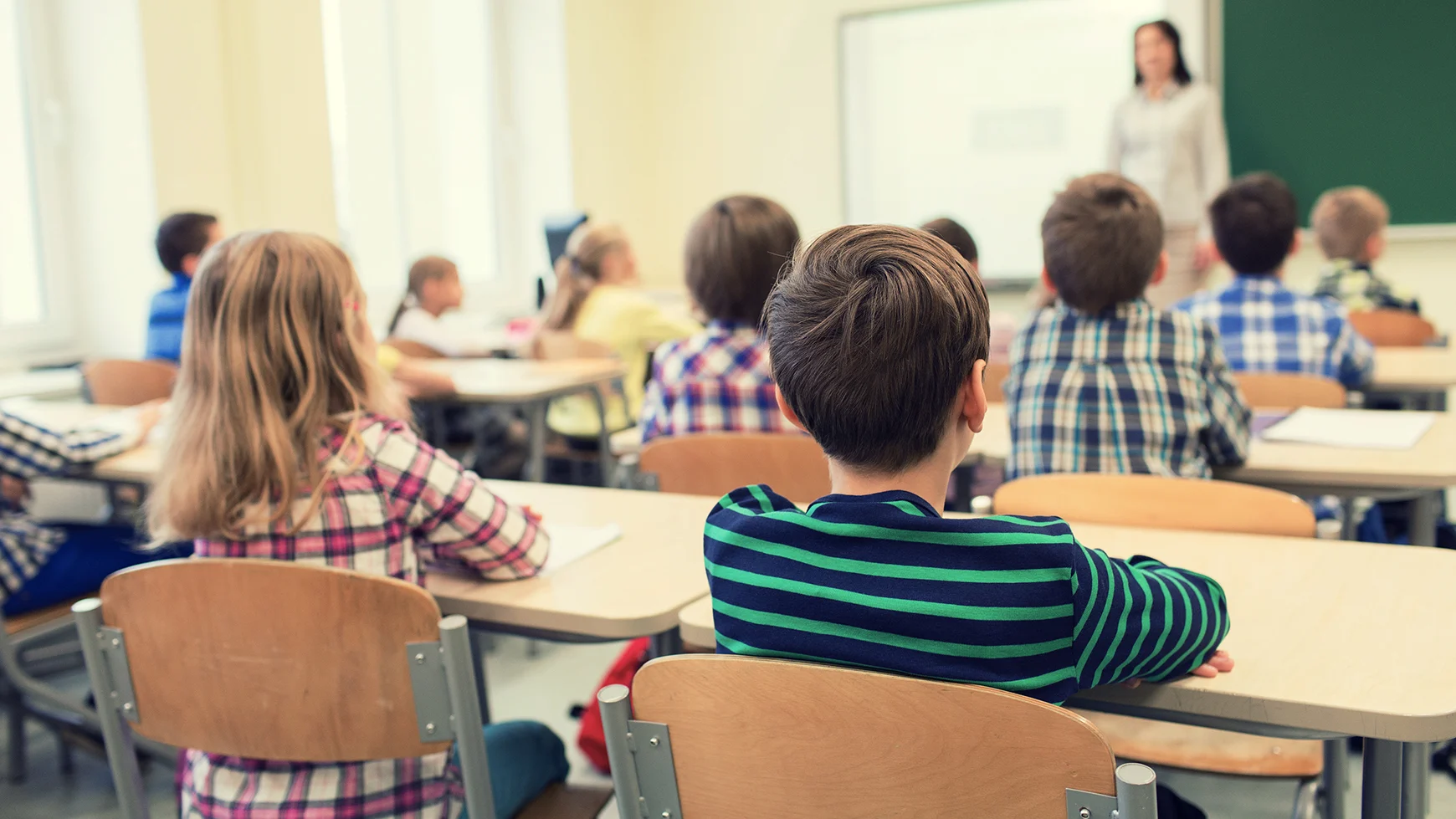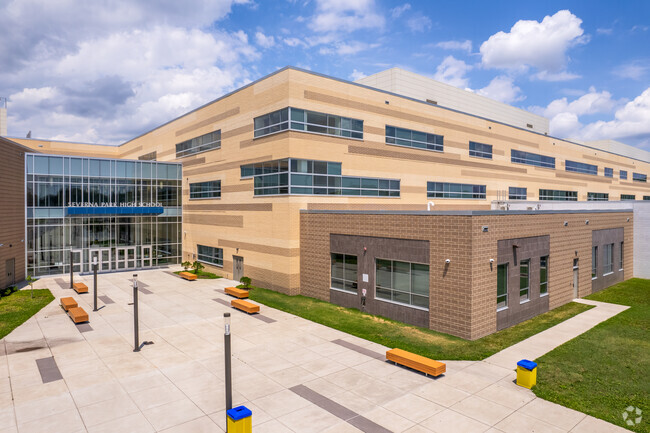Comprehending the Importance of Schools in Kid Development and Community Growth
Colleges' engagement with neighborhood areas via service-learning efforts reinforces the bond in between family members and educational institutions. This symbiotic partnership emphasizes the value of institutions in supporting energetic citizenship and lifelong understanding routines.
Academic Success
Academic accomplishment acts as a keystone of kid development, offering the foundation whereupon future discovering and success are constructed. Colleges play an essential role in cultivating this scholastic growth, offering organized environments where children can get necessary expertise and cognitive abilities. Standardized curricula make certain that pupils gain effectiveness in core subjects such as maths, scientific research, and language arts, which are essential for both college and expert opportunities.
In addition to imparting essential scholastic abilities, institutions additionally cultivate essential reasoning, analytical capacities, and intellectual interest. These cognitive expertises are essential for navigating intricate real-world circumstances and adapting to the ever-evolving demands of the contemporary workplace. Teachers, as facilitators of knowing, use diverse instructional techniques to accommodate different knowing designs, thereby maximizing individual pupil possibility.
Furthermore, scholastic success is carefully connected to self-confidence and inspiration. Youngsters that experience scholastic achievements are a lot more most likely to create a positive self-concept and a lifelong interest for knowing. Colleges likewise use different resources, such as libraries and modern technology, which further boost the academic experience and prepare pupils for a technologically sophisticated society.
Social Ability Development
Beyond academic achievement, the role of schools in social ability growth is indispensable. Schools serve as a key place for kids to learn and exercise important social abilities such as collaboration, communication, and problem resolution. In the organized environment of a classroom, pupils engage with peers, educators, and various other college staff, providing numerous opportunities to create these critical capabilities.
Reliable social skill development in institutions is promoted via group tasks, collaborative jobs, and extracurricular programs. These communications help trainees comprehend social norms, construct empathy, and promote a feeling of community. For circumstances, team assignments teach pupils how to collaborate towards a common goal, listen to different perspectives, and navigate disagreements constructively.

The growing of social skills throughout college years lays a structure for future personal and expert connections. Save Temecula Schools. As trainees grow, the ability to effectively team up and communicate comes to be increasingly essential, emphasizing the school's important role in alternative kid growth
Exposure to Diversity
Direct exposure to variety in schools is essential to promoting an inclusive state of mind and widening students' viewpoints. Schools act as a microcosm of the broader society, and coming across varied cultures, languages, and socioeconomic histories within this atmosphere equips trainees with essential skills for browsing a progressively globalized world. This exposure motivates empathy, decreases prejudices, and promotes shared respect among peers.
Research study indicates that pupils that connect with peers from different backgrounds show better problem-solving abilities and imagination. This understanding of variety prepares trainees for future work environments that value multicultural skills - Save Temecula Schools.

Neighborhood Involvement
The advantages of varied classrooms expand past the college wall surfaces, fostering a solid sense of community interaction among trainees. By engaging with peers from various cultural, socioeconomic, and ethnic backgrounds, students gain a broader viewpoint and an admiration for variety. This direct exposure encourages them to become energetic citizens that agree to add favorably to their areas.
Schools that emphasize neighborhood interaction usually include service-learning tasks, which enable pupils to attend to real-world troubles while using scholastic abilities. These jobs not only enhance trainees' understanding of their coursework yet likewise impart a sense of responsibility and compassion. In addition, collaborations between schools and local organizations offer trainees with chances to get involved in neighborhood events, better strengthening their function as positive area members.
Additionally, adult and neighborhood participation in schools enhances the bond between schools and the communities they offer. When institutions open their doors to neighborhood events, workshops, and volunteer chances, they create a collective setting that profits all stakeholders. This mutual support group ensures that students get all natural development, preparing them to come to be well-rounded individuals who add and value to their communities. With these initiatives, institutions play a crucial role in nurturing area involvement and cultivating societal growth.
Lifelong Knowing Routines
Establishing long-lasting learning behaviors is important for a kid's continual development and versatility in an ever-changing world. Institutions play a crucial role in instilling these habits by producing an environment that fosters curiosity, vital reasoning, and a love for knowledge. Through varied educational programs and extracurricular tasks, educators encourage students to check out numerous subjects, examine information critically, and use their discovering to real-world circumstances.

Additionally, colleges offer an organized setting where children can establish self-control and time monitoring skills, both of which are vital for continuous knowing. By highlighting the relevance of setting goals, showing on progression, and adjusting strategies, universities prepare pupils to navigate the complexities of adult life, guaranteeing they stay lifelong learners and contributors to society.
Verdict
To conclude, schools are crucial in promoting youngster growth and area development by offering environments for scholastic accomplishment, social ability growth, and direct exposure to diversity. Via collaborative projects and interactions, schools enhance crucial thinking, compassion, and interaction abilities. Neighborhood interaction initiatives additionally enhance the bond in between neighborhood areas and educational institutions. Ultimately, colleges grow long-lasting discovering practices, outfitting people with the needed understanding and skills to contribute positively to culture.
In the structured environment of a classroom, pupils interact with peers, teachers, and various other institution staff, offering countless possibilities to develop these important abilities.
In try this web-site significance, direct exposure to variety within colleges not only enriches individual pupils however likewise strengthens the social fabric of the area as a whole.
The advantages of varied classrooms expand past the school wall surfaces, promoting a strong sense of community interaction amongst pupils.Schools that stress neighborhood interaction typically include service-learning projects, which allow trainees to address real-world troubles while applying scholastic abilities. Collaborations between colleges and local organizations provide students with opportunities to take part in neighborhood occasions, additionally solidifying their duty as proactive community members.